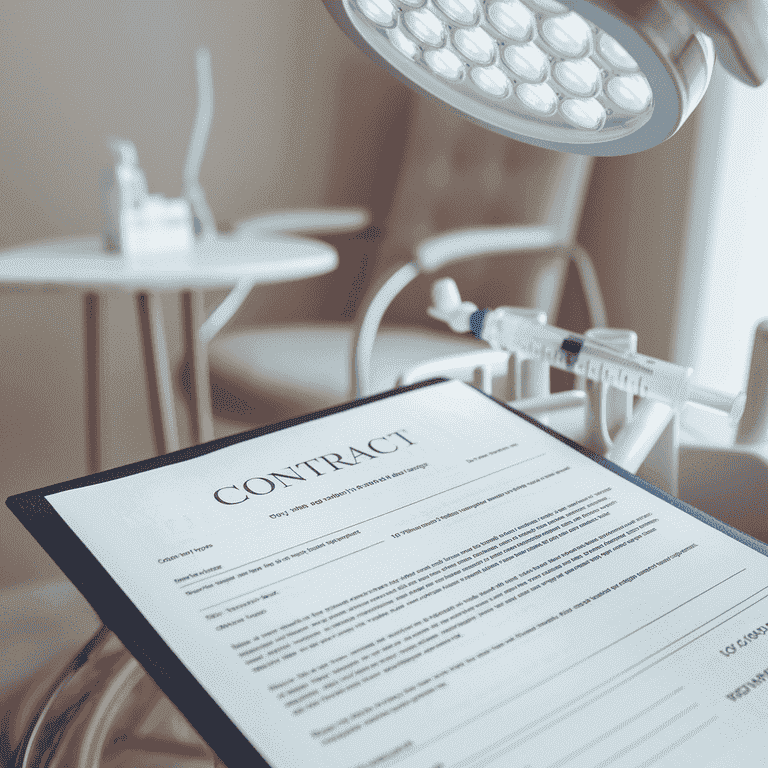What Is a Dermatology Expert Witness?
Definition and General Overview
A dermatology expert witness is a medical professional specializing in skin, hair, and nail health who provides expert opinions and testimony in legal cases. Their role is critical in clarifying complex dermatological issues for judges, juries, and attorneys. These experts assess the facts of a case, interpret medical evidence, and provide unbiased insights into whether medical standards were met or if specific conditions caused damages.

Types of Legal Cases Involving Dermatology Expert Witnesses
Dermatology expert witnesses are called upon in various types of legal cases, including:
- Medical Malpractice Cases
- Misdiagnoses, delayed diagnoses, or treatment errors related to dermatological conditions.
- Failure to identify severe conditions, such as melanoma.
- Personal Injury Claims
- Skin injuries resulting from burns, lacerations, or chemical exposure.
- Cases involving permanent scarring or disfigurement.
- Product Liability Cases
- Adverse reactions to skincare products or cosmetics.
- Side effects from medications or dermatological treatments.
- Employment Disputes
- Claims of workplace-related skin conditions, such as contact dermatitis.
- Issues related to workers’ compensation for occupational dermatological injuries.
Qualifications and Expertise of a Dermatology Expert Witness
Educational Background and Certifications
Dermatology expert witnesses must have a solid educational foundation and professional credentials, typically including:
- A medical degree (MD or DO) with a specialization in dermatology.
- Board dermatology certifications, such as the American Board of Dermatology certification.
- Memberships in professional organizations, such as the American Academy of Dermatology (AAD).
Clinical Experience and Specializations
For dermatology expert witnesses, relevant clinical experience is essential to lend credibility to their opinions. Examples include:
- Years of Practice: Demonstrated history of treating patients in diverse dermatological cases.
- Specialized Expertise: Proficiency in specific fields, such as:
- Cosmetic Dermatology: Expertise in procedures like laser treatments or chemical peels.
- Skin Cancer Diagnosis and Treatment: Extensive experience in melanoma and other skin cancers.
- Occupational Dermatology: Familiarity with workplace-related skin conditions.
Legal and Forensic Training
Although not mandatory, additional training in legal and forensic processes can enhance a dermatology expert’s qualifications, including:
- Courses or certifications in forensic dermatology.
- Knowledge of legal procedures, terminology, and requirements for expert testimony.
Roles of a Dermatology Expert Witness in Legal Proceedings
Case Review and Analysis
Dermatology expert witnesses start by reviewing the details of a case. This includes examining medical records, photographs, and other documentation related to the issue. Their goal is to understand the medical aspects of the case and identify whether proper care standards were followed.
Some critical tasks in this phase include:
- Reviewing patient histories to spot potential errors or omissions.
- Analyzing photographs of injuries, scars, or skin conditions.
- Cross-referencing care provided with accepted medical guidelines.
For example, in a case involving a delayed melanoma diagnosis, the expert might evaluate biopsy reports, doctor notes, and imaging studies to determine if the delay impacted the patient’s prognosis.
Providing Expert Opinions
Once the review is complete, the dermatology expert provides their professional opinion. This is always based on evidence and objective medical knowledge.
Their opinions may address the following:
- Whether a specific treatment or diagnosis adhered to medical standards.
- The connection between a product or event and a skin condition.
- The severity of an injury and its long-term effects.
A well-crafted expert opinion can make or break a case. It needs to be clear, concise, and fully supported by evidence.
Deposition and Trial Testimony
If the case proceeds to trial, the dermatology expert plays a crucial role. They may be asked to testify in court or during depositions.
During testimony, they:
- Explain their findings in simple, layman-friendly language.
- Break down complex dermatological concepts into manageable pieces.
- Answer questions from attorneys, including cross-examination by opposing counsel.
For instance, they might describe how a chemical burn occurred and whether workplace safety protocols were sufficient. The ability to stay calm and professional under pressure is vital here.
Common Dermatological Issues Addressed in Legal Cases
Skin Conditions in Medical Malpractice Claims
Many malpractice claims involve dermatological issues. Errors in diagnosis or treatment can lead to devastating consequences for patients.
Common examples include:
- Misdiagnosis of Skin Cancer: Missing early signs of melanoma or mistaking it for a benign mole.
- Errors During Procedures: Issues like laser burns or improper administration of cosmetic treatments.
- Failure to Treat Skin Infections: Allowing conditions like cellulitis to worsen due to neglect or mismanagement.
Injuries and Scarring in Personal Injury Cases
Dermatology experts often assess the impact of physical injuries. They examine how an injury has affected a person’s appearance, health, and daily life.
Some examples include:
- Burns and Chemical Injuries: Determining burns’ depth, severity, and long-term impact.
- Scarring: Assessing the permanence of scars and their effect on mental well-being.
A scar on a visible area, like the face or hands, may carry more emotional and psychological weight than one on a less exposed part of the body.
Adverse Reactions in Product Liability Cases
Products designed for the skin can sometimes cause harm. A dermatology expert helps determine whether a product was defective or misused.
Potential claims may involve:
- Allergic reactions to creams, lotions, or medications.
- Chemical burns from cosmetic treatments.
- Long-term damage from unsafe ingredients.
Occupational Dermatology Issues
Dermatology experts are also essential in workplace skin conditions. They identify links between workplace environments and skin problems.
Examples of occupational issues include:
- Contact Dermatitis: Skin reactions caused by chemicals, gloves, or other materials.
- Photosensitivity: Skin conditions triggered by exposure to sunlight combined with workplace substances.
- Infections: Fungal or bacterial infections common in specific industries.
A well-prepared expert can help demonstrate whether the workplace environment directly contributes to a worker’s condition.
Preparing and Presenting Expert Testimony
Writing Comprehensive Expert Reports
One of the primary responsibilities of a dermatology expert witness is crafting detailed reports. These documents summarize their findings and opinions. They are a cornerstone for legal arguments and must be thorough and accessible.
Critical elements of an expert report include:
- Case Summary: A clear description of the dermatological issue in question.
- Medical Analysis: An explanation of the condition, treatment provided, and any deviations from standard care.
- Expert Opinion: A well-supported conclusion based on evidence and professional knowledge.
- Supporting Evidence: References to medical records, images, and relevant guidelines.
A strong report uses plain language where possible. It avoids unnecessary jargon while maintaining professional integrity.
Effective Communication in Court
In court, the dermatology expert witness often serves as a bridge between complex medical concepts and the understanding of a lay audience.
Effective communication involves:
- Simplifying Technical Terms: Explaining conditions like “psoriasis” or “contact dermatitis” in relatable terms.
- Using Visual Aids: Charts, diagrams, or photos can help juries visualize injuries or conditions.
- Staying Neutral: Remaining calm and factual, even under challenging cross-examination.
For instance, an expert might explain the difference between first-degree and third-degree burns using diagrams and real-life examples. This approach keeps the jury engaged and informed.
Challenges in Testifying as a Dermatology Expert Witness
Being an expert witness is challenging. Opposing attorneys may attempt to discredit the testimony.
Common challenges include:
- Countering Opposing Experts: Providing clear and convincing rebuttals to contradictory opinions.
- Handling Cross-Examinations: Answering tough questions without becoming defensive.
- Maintaining Credibility: Ensuring every statement is supported by evidence and sound medical knowledge.
Preparation is the key to overcoming these hurdles. A confident, well-prepared expert witness
can stand firm under pressure.
How to Choose the Right Dermatology Expert Witness
Essential Qualities to Look For
Selecting the right dermatology expert can significantly impact a case. Some essential qualities include:
- Relevant Experience: The expert should have direct experience with cases similar to yours.
- Strong Communication Skills: They should be able to explain their findings clearly in writing and in court.
- Impartiality: A good expert maintains objectivity and avoids appearing biased.
An ideal expert is not only knowledgeable but also approachable and professional.
Vetting Potential Expert Witnesses
Careful vetting ensures you find the right person for the job. Here are steps to evaluate potential experts:
- Check Credentials: Verify educational background, certifications, and professional memberships.
- Review Case History: Look at their previous involvement in legal cases. Success in similar cases can be a good indicator.
- Assess Reputation: Read reviews, seek recommendations, or check public records for insights into their credibility.
You can also schedule an initial consultation to gauge their communication style and willingness to collaborate.

Cost and Compensation for Dermatology Expert Witnesses
Fee Structures
Dermatology expert witnesses typically charge fees based on the time and effort they devote to a case. Because their services are specialized, the cost often reflects their level of expertise and the demands of the case.
Common fee structures include:
- Hourly Rates: Most experts charge by the hour for consultations, case reviews, and report writing.
- Flat Fees: Some experts may offer flat fees for specific tasks, such as writing an expert report or appearing in court.
- Retainers: For ongoing cases, experts may request a retainer, an upfront payment to secure their services.
Benefits of Using a Dermatology Expert Witness
Enhancing Case Credibility
A dermatology expert witness adds weight to legal arguments. Their specialized knowledge can clarify complex medical issues and make cases more persuasive.
Ways they enhance credibility include:
- Providing Unbiased Opinions: Their findings are based on evidence and professional expertise.
- Clarifying Technical Details: They make medical jargon understandable for judges and juries.
- Supporting or Refuting Claims: Their testimony can strengthen a plaintiff’s case or highlight weaknesses in the opposing argument.
For instance, if a skincare product causes severe allergic reactions, an expert can validate whether the product’s formulation or usage instructions contributed to the issue.
Strengthening Legal Strategies
Dermatology experts play a pivotal role in shaping effective legal strategies.
They contribute by:
- Helping Attorneys Understand Medical Aspects: Their input allows lawyers to craft stronger arguments.
- Identifying Key Evidence: They highlight critical medical records, photos, or tests that can influence outcomes.
- Anticipating Opposing Testimonies: Their expertise can help prepare rebuttals to counter opposing experts.
With their guidance, legal teams can approach cases with confidence and precision.
Improving Outcomes in Complex Cases
An expert witness can significantly impact the result when dermatological issues are central.
Their involvement ensures:
- Clear explanations of the medical facts.
- Strong support for the legal narrative.
- Greater understanding by juries increases the likelihood of favorable outcomes.
A skilled dermatology expert witness can help bridge the gap between complex medicine and courtroom decision-making.

Ethical Considerations for Dermatology Expert Witnesses
Objectivity and Impartiality
A dermatology expert witness must remain neutral. Their role is to provide an honest, evidence-based opinion, regardless of which side they represent.
Key principles include:
- Avoiding Bias: Experts should focus on facts and not advocate for one side.
- Providing Balanced Testimony: All conclusions must be fair and rooted in medical evidence.
- Refusing Cases Outside Their Expertise: They should only accept cases where they have sufficient knowledge.
An expert’s credibility relies heavily on their ability to stay impartial. Any sign of bias can undermine their testimony.
Adhering to Professional Guidelines
Professional ethics play a critical role in expert witness work. Dermatologists serving as witnesses should:
- Follow Medical Standards: Opinions must align with accepted dermatological practices.
- Comply with Legal Requirements: They should understand and adhere to courtroom procedures and legal protocols.
- Maintain Confidentiality: Patient information and case details must be kept private, except where disclosure is legally required.
Adhering to these guidelines protects their professional reputation and strengthens their role in the courtroom.
Challenges Dermatology Expert Witnesses Face
Difficulty in Simplifying Complex Medical Information
One of the most significant challenges for dermatology expert witnesses is making complex medical information easy to understand. Courtrooms are full of people with limited medical knowledge; an expert’s job is to bridge that gap.
To do this effectively, they must:
- Avoid Medical Jargon: They must explain terms like “basal cell carcinoma” or “eczema” in layman’s terms.
- Use Visual Aids: Diagrams, photographs, and charts help clarify the condition.
- Provide Real-World Examples: Explaining how a skin condition affects daily life can help make the concept relatable.
For example, instead of diving into technical details about a skin infection, an expert might compare it to a typical, easily understood example, such as a cut that becomes infected.
Handling Cross-Examination and Legal Pressure
During the trial, dermatology expert witnesses face intense questioning. Opposing attorneys will challenge their opinions, and the pressure to stand firm while under cross-examination is significant.
Common challenges include:
- Questioning Credibility: Opposing counsel might try to discredit an expert’s qualifications.
- Stressful Questioning: Attorneys often ask rapid-fire questions to test an expert’s response time and reliability.
- Conflicting Opinions: In some cases, experts may have to defend their opinions against another expert’s testimony.
To prepare for these challenges, a dermatologist must stay calm, stick to the facts, and avoid becoming defensive.
Managing Time and Case Demands
Dermatology experts are often asked to manage multiple cases simultaneously, which can be challenging given their clinical responsibilities.
Some time-related challenges include:
- Tight Deadlines: Writing detailed reports, reviewing evidence, and preparing for trial can be time-consuming.
- Travel for Depositions or Court Appearances: Experts may have to travel long distances, adding additional time constraints.
- Ongoing Case Work: Legal cases can drag on, requiring expert witnesses to stay involved over extended periods.
Effective time management and organization are crucial to handling these pressures.
Breaking It Down
Impact on Legal Outcomes
A dermatology expert witness can play a pivotal role in a case’s success. Their ability to interpret medical facts, offer explicit opinions, and withstand cross-examination can make all the difference. Whether it’s a medical malpractice claim, personal injury lawsuit, or product liability case, their expertise strengthens the argument.
The key benefits of having a qualified dermatology expert include:
- Clarification of Complex Medical Issues: Expert witnesses simplify difficult concepts for judges, juries, and attorneys.
- Credible Testimony: Their impartial, well-supported opinions increase the likelihood of favorable rulings.
- Improved Case Strategy: Their input helps attorneys form more robust, more informed arguments.
In many legal cases, a strong dermatology expert witness can turn the tide in favor of the party they support.
Final Thoughts on Selecting and Working with Dermatology Experts
Selecting the right dermatology expert witness is critical in legal cases involving skin conditions or treatments. The right expert adds credibility and clarity, giving the legal team a more straightforward path to success.
To ensure the best outcome:
- Choose Experts with Relevant Experience: Look for those with hands-on experience in the specific dermatological issue.
- Prioritize Clear Communication: An expert who can confidently explain medical concepts is invaluable in the courtroom.
- Ensure Objectivity and Ethics: A good expert witness maintains impartiality and adheres to ethical standards.
With careful selection and preparation, a dermatology expert witness can become an essential ally in navigating complex legal challenges related to skin health.
Frequently Asked Questions
How do I know if I need a dermatology expert witness for my case?
You may need a dermatology expert witness if your case involves complex skin conditions or treatments that require specialized medical knowledge. For example, cases related to medical malpractice, personal injury from skin-related incidents, or product liability for skincare products often benefit from expert testimony. If the case includes questions about dermatological standards or medical procedures, an expert can help clarify these issues.
What is the difference between a medical expert witness and a dermatology expert witness?
A medical expert witness has general medical knowledge, while a dermatology expert witness specializes in skin conditions and treatments. Dermatology experts have in-depth knowledge about the diagnosis, treatment, and care of the skin, hair, and nails, making them more qualified to address specific dermatological issues in court.
Can a dermatology expert witness testify in any legal case?
Dermatology experts are typically called upon in cases where dermatological issues are central to the matter. This includes medical malpractice, personal injury (such as burns or allergic reactions), product liability (such as reactions to skincare products), and workers’ compensation cases involving skin conditions. They are not suitable for cases unrelated to dermatology.
How long does it take to find a qualified dermatology expert witness?
The process can take anywhere from a few days to several weeks, depending on the complexity of the case and the availability of qualified experts. It is important to allow enough time for a thorough search, candidate vetting, and any preliminary discussions or consultations.
What if the opposing side has a dermatology expert witness?
If the opposing side presents an expert witness, it is crucial to prepare a rebuttal strategy. Your dermatology expert witness can review their findings and provide counter-expert opinions. This may involve challenging their methodology, offering a different interpretation of the evidence, or presenting additional facts that support your case.
Can a dermatology expert witness be used for a case outside the United States?
While dermatology experts primarily practice in their home countries, many have international experience or are recognized in other jurisdictions. If you are involved in a case outside the U.S., it’s essential to find an expert who understands the legal and medical standards of the relevant country. Experts with international experience may be able to assist, provided their credentials meet local legal requirements.
How do dermatology expert witnesses prepare for trial?
Dermatology experts prepare for trial by reviewing all relevant medical records, photographs, and evidence related to the case. They craft detailed reports and often discuss strategy with the legal team. Additionally, they may participate in mock cross-examinations to prepare for challenges during trial.
Are there any qualifications or certifications that dermatology expert witnesses must have?
Dermatology experts should be board-certified dermatologists with years of clinical experience diagnosing and treating skin conditions. Depending on the case’s focus, they may also have additional certifications in related areas, such as dermatopathology or cosmetic dermatology. It’s essential to verify their credentials before hiring them for your case.
What should I expect during a consultation with a dermatology expert witness?
During a consultation, the dermatology expert will review the details of your case and offer an initial opinion based on their knowledge and experience. You should expect them to ask about medical records, treatment history, and other relevant information. This is an opportunity to assess whether they can provide the support your case needs.
Can a dermatology expert witness provide a second opinion?
Dermatology experts can provide second opinions on medical diagnoses, treatment plans, or the standard of care provided in a case. This is especially helpful if there is doubt about the accuracy or adequacy of previous medical decisions. A second opinion can also be crucial in cases with conflicting testimony from other experts.
How do I ensure my dermatology expert witness remains credible in court?
To maintain credibility, the expert must remain impartial, support all opinions with solid evidence, and communicate clearly and confidently. Thoroughly preparing the expert, including practicing direct and cross-examination, also helps ensure they present themselves as knowledgeable and trustworthy during the trial.
What happens if the expert witness’s testimony is contested?
If the testimony of a dermatology expert witness is contested, both sides may present additional evidence or experts. The legal team must prepare to counter the opposing expert’s claims through cross-examination, challenging their credentials, or offering a different interpretation of the evidence.
Can a dermatology expert witness be called to testify in a deposition?
Yes, dermatology expert witnesses can be called to testify in a deposition. During a deposition, they provide sworn testimony before trial, which may later be used in court. This testimony can focus on their findings, medical opinions, and any evidence they have reviewed about the case.

What’s Next?
Ready to take the next step? Reach out to us today and let’s discuss how we can help you achieve your goals. Whether you need expert insights, strategic guidance, or professional assistance, our team is here to support you every step of the way. Visit our contact page to get in touch with us directly. We look forward to collaborating with you!



